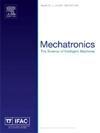Trade-off between flight performance and energy consumption of a quadrotor
IF 3.1
3区 计算机科学
Q2 AUTOMATION & CONTROL SYSTEMS
引用次数: 0
Abstract
This paper studies analytically and quantitatively the influence of the power source on the dynamic performance of the altitude control system of a quadrotor powered by an electrochemical battery. This paper also proposes the formulation of the altitude control system design as a constrained optimization problem in which the drone, actuators, control law, and electrochemical battery models are considered, to define a trade-off between the power consumption rate and the closed-loop dynamic performance loss. An analytical representation of the effect of the battery discharge over the altitude dynamics is obtained through a linear approximation, enabling an analysis of the system poles. The problem of designing an altitude controller is then posed as a constrained optimization problem that can include the battery as a factor. A comparison of the error transient response between the cases of the battery-unaware controller design and the battery-aware controller design is performed in simulations and experimental flight tests. The results lead to the following conclusions: i. the analytical demonstration agrees with the worse performance observed in the in-flight dynamics as the battery discharges and ii. through a battery-aware controller design approach this effect can be diminished, at the cost of a trade-off in the battery discharge rate.
四旋翼飞行器的飞行性能和能量消耗之间的权衡
本文分析和定量地研究了电源对电化学电池供电的四旋翼飞行器高度控制系统动态性能的影响。本文还提出了将高度控制系统设计表述为考虑无人机、执行器、控制律和电化学电池模型的约束优化问题,以确定功耗率和闭环动态性能损失之间的权衡。通过线性近似获得了电池放电对高度动力学影响的解析表示,从而能够分析系统极点。然后将高度控制器的设计问题作为一个包含电池作为一个因素的约束优化问题。通过仿真和实验飞行试验,比较了电池无感知控制器设计和电池有感知控制器设计两种情况下的误差瞬态响应。结果表明:1 .分析论证与飞行动力学中观察到的电池放电性能较差的结论一致;通过电池感知控制器设计方法,这种影响可以减少,代价是电池放电速率的权衡。
本文章由计算机程序翻译,如有差异,请以英文原文为准。
求助全文
约1分钟内获得全文
求助全文
来源期刊

Mechatronics
工程技术-工程:电子与电气
CiteScore
5.90
自引率
9.10%
发文量
0
审稿时长
109 days
期刊介绍:
Mechatronics is the synergistic combination of precision mechanical engineering, electronic control and systems thinking in the design of products and manufacturing processes. It relates to the design of systems, devices and products aimed at achieving an optimal balance between basic mechanical structure and its overall control. The purpose of this journal is to provide rapid publication of topical papers featuring practical developments in mechatronics. It will cover a wide range of application areas including consumer product design, instrumentation, manufacturing methods, computer integration and process and device control, and will attract a readership from across the industrial and academic research spectrum. Particular importance will be attached to aspects of innovation in mechatronics design philosophy which illustrate the benefits obtainable by an a priori integration of functionality with embedded microprocessor control. A major item will be the design of machines, devices and systems possessing a degree of computer based intelligence. The journal seeks to publish research progress in this field with an emphasis on the applied rather than the theoretical. It will also serve the dual role of bringing greater recognition to this important area of engineering.
 求助内容:
求助内容: 应助结果提醒方式:
应助结果提醒方式:


